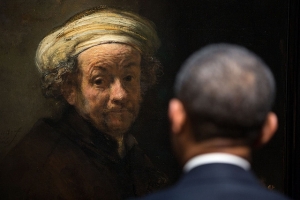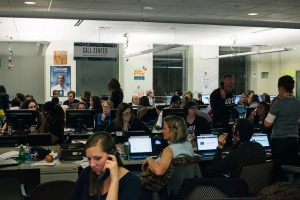Support migrant centric journalism today and donate

The Financial Times has reviewed a new book warning of the dangers caused to the US by its immigration policy. Vivek Wadhwa, who came to the US as an immigrant himself, says that the US is losing its pre-eminence as a destination of choice for immigrants because of an immigration policy that is hostile to immigrants.
Mr Wadhwa's book The Immigrant Exodus: Why America Is Losing the Global Race to Capture Entrepreneurial Talent, in which he argues that the US grew into the great power it is because it accepted immigrants. Workpermit.com first wrote about the book on August 22nd 2012. It has now been reviewed by the Financial Times chief correspondent to the US, Richard Luce.
In his book, Mr Wadhwa says that he fell in love with the US as a child when he visited with his father, who had been posted to New York. Wadhwa junior later returned and became a noted academic and entrepreneur. He created software for Credit Suisse First Boston in the 1990s that led to the flotation of software firm Seer Technologies. He has also been an academic at several universities and founded other businesses. He is a prominent commentator for US media.
And yet, Mr Wadhwa says that, if he applied to settle in the US today, he would probably not get a visa. Even if he did, he would almost certainly have to wait for ten years to be granted permanent resident status. It is this kind of obstacle that is driving immigrants away from the US and towards other countries such as Australia, Canada, Chile and Singapore, he says.
Wadhwa argues that the US should increase skilled migration because, far from taking jobs away from US citizens, it would boost the US economy and increase the number of jobs available for all. Mr Wadhwa says that the fall in the number of immigrants has coincided with a fall in the number of patents filed by US citizens. In 2000, 42% of patents filed globally were filed in the US. This has now fallen to 27%.
Wadhwa says that the number of H-1B visas, visas granted to foreign graduates in 'specialty occupations', has fallen dramatically. In the early 1990s, there was an annual cap on the number of H-1B visas that could be granted but it was rarely reached. When, in the late 1990s, the cap was reached, it was raised. In 2001, 2002 and 2003, 195,000 H-1B visas were granted. However, a cap of 90,000 per year was imposed in 2004. It has now fallen to 65,000 per year. The cap is calculated with reference to the financial year and so the new year for applications begins on April 1st. This year, the cap was reached on 11th June, after less than two and a half months.
Consequently, immigration to the US for skilled graduates is a very difficult, and time consuming, process. Even those lucky graduates who get an H-1B visa may have to wait for ten years to get their green card because of restrictions imposed by the government, Wadhwa says. Another rule which states that only 7% of the total number of H-1B visas may come from any one country imposes a still tighter cap on the numbers of Chinese and Indian applicants because, coming from populous countries, they have an even lower individual chance of obtaining a visa.
It is for this reason, Wadhwa says, that highly qualified graduates from developing countries, particularly China and India are now applying to Canada, Australia, Singapore where such graduates are welcomed (and sometimes given grants to help them settle). Many visit the US where they gain an excellent education and then settle elsewhere.
There have been attempts by Republican and Democrat Congressmen to introduce legislation to increase the numbers of 'green card' permanent residence permits granted to highly skilled migrants but these have failed to become law. Both presidential candidates in the race for the US presidency; Barack Obama and Mitt Romney, have promised to sort out the problem out as soon as possible. However, Richard Luce says 'green card applicants should not hold their breath.'
Mr Wadhwa says that the result of the US's restrictive immigration policy is that the world's brightest students are educated in US universities and then sent off to make their lives elsewhere.
Mr Luce says that this is 'not so much an immigration regime as a system of spectacularly generous foreign aid'. He says that, because the US seems to be causing itself such damage and handing such assets to its competitors, there are 'reasons to fear that the country has taken leave of its senses'.
If you would like to apply for a US visa, WorkPermit.com can help. WorkPermit.com is a specialist visa consultancy with nearly twenty-five years of experience dealing with visa applications. We can help with a wide range of visa applications to your country of choice. Please feel free to contact us for further details.





















